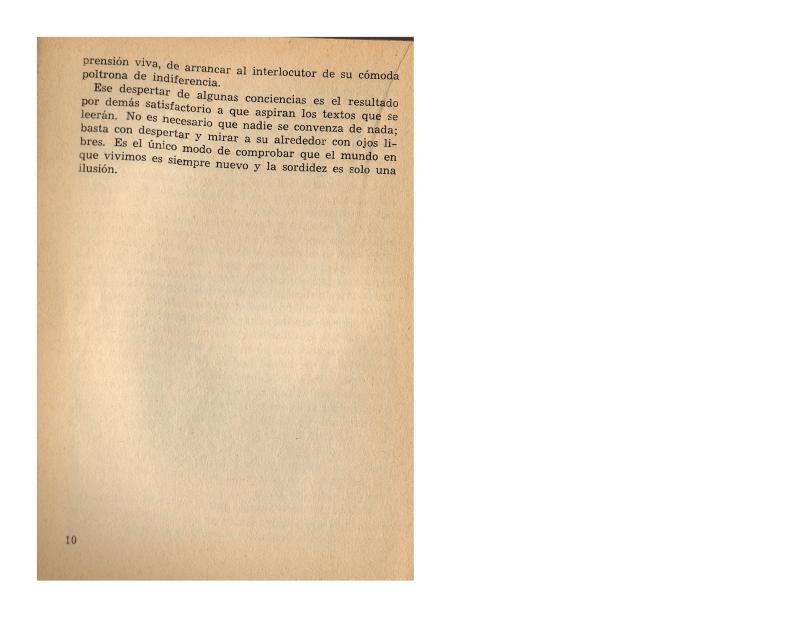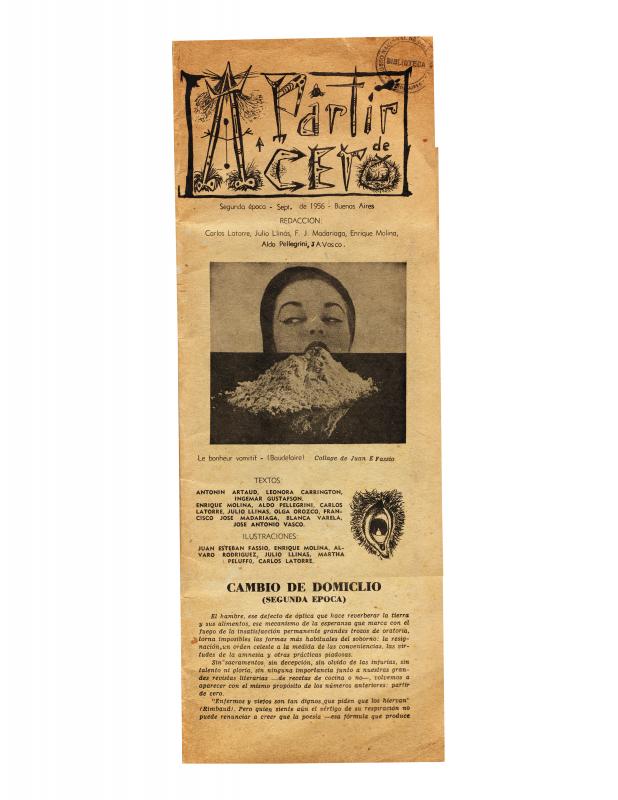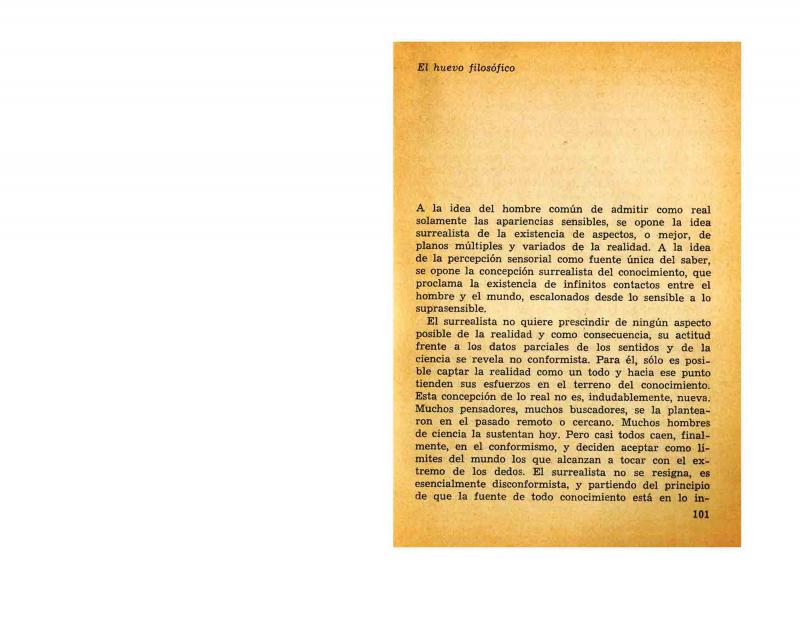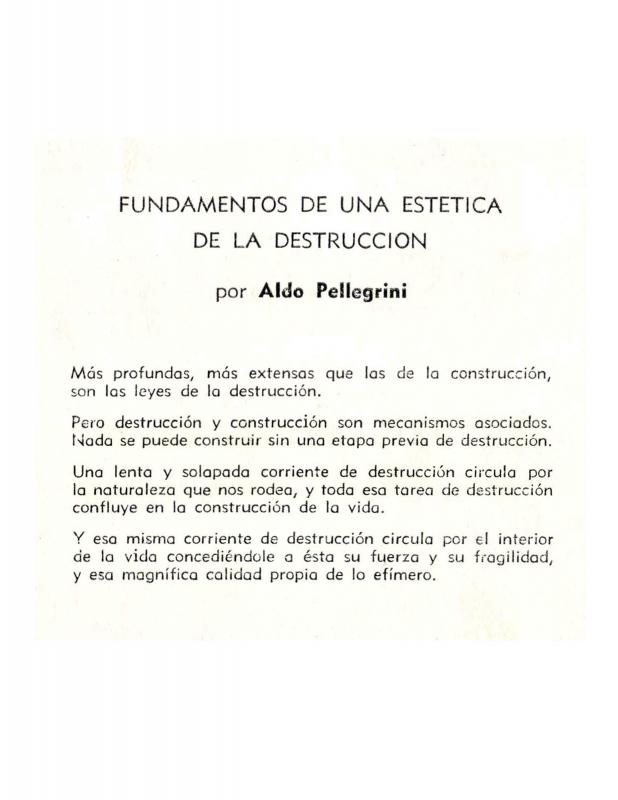Aldo Pellegrini (Rosario, 1903–Buenos Aires, 1973) was a very prominent poet, playwright, essayist, and art critic in the Argentinean cultural milieu. Linked from the beginning to the development of Surrealism, he directed several editorial projects. Likewise, he supported and helped spread Abstract art’s different trends, promoting several groups, such as Artistas Modernos de la Argentina [Moderns Artists of Argentina] and Asociación Arte Nuevo [New Art Association]. The following texts are compiled in this book: “Ensayos persuasivos” [“Persuasive Essays”]; “Sobre la decadencia del arte contemporáneo” [“About the Decadence of Contemporary Art”]; “La universalidad de lo poético” [“The Universal Reach of What Is Poetic”]; “Ensayos apersuasivos” [“Unpersuasive Essays”]; “La acción subversiva de la poesía” [“The Subversive Action of Poetry”]; “La soledad del artista” [“The Loneliness of the Artist”]; “El ilustre desconocido” [“The Illustrious Unknown”]; “Comentarios a tres frases de autores célebres” [“Commentary on Three Quotes by Celebrated Authors”]; “Se llama poesía todo aquello que cierra la puerta a los imbéciles” [“We Call Poetry Everything That Closes the Door on Senseless”]; “El poder de la palabra” [“The Power of the Word”]; “El huevo filosófico” [“The Philosophical Egg”]; and “Fundamentos de una estética de la destrucción” [“Grounds for an Aesthetic of Destruction].” (See documents numbers: 745224, 744705, 745210, and 741492) The text “El poder de la palabra” was originally published in the second issue of the journal A partir de cero [Starting from Zero] of December, 1952. This was a literary journal with a Surrealist focus, directed by poet Enrique Molina (1910–1997) that circulated since 1952 and began a second phase in 1956.This document has been selected because it demonstrates the preeminence of Surrealist ideas in the critical insight of Pellegrini, who, upon starting with the knowledge of the various aspects of reality, preferred to adopt a non-conformist stance. Likewise, this text describes the dialectic conception upon which he grounded his theoretical production.




